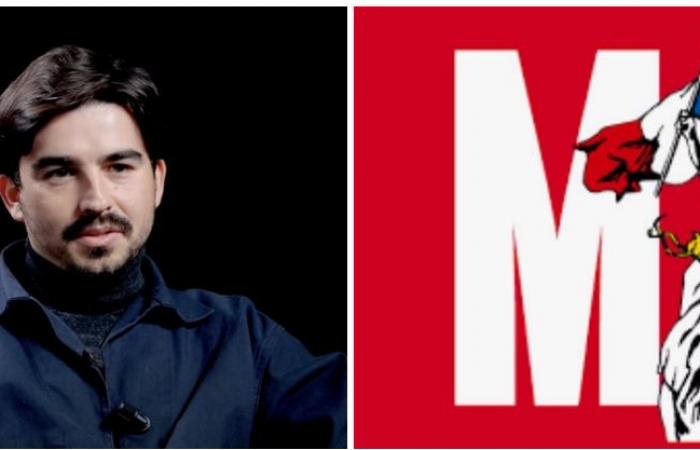
Expelled from Morocco in 2023, Quentin Müller is publishing these days a series of accusatory articles on King Mohammed VI. Everything goes: dubious quotes, narrative construction based on poorly supported presuppositions, elements which are strongly reminiscent of previous works devoted to the Moroccan monarch, without however crediting them. Despite the warnings, Marianne, her employer, condones this blatant lack of intellectual integrity.
“It happened that he beat a colleague” : but where could he have gleaned this sentence from? in the book, released in 2012, by two (former) French journalists, Éric Laurent and Catherine Graciet, sentenced in March 2023 to one year in prison and a fine of 10,000 euros, found guilty of trying to blackmail the king of Morocco in 2015 by demanding considerable funds not to publish a book indictment against the monarchy. “M6 the despot”the title of this new, unjournalistic search, is already off to a very bad start.
“A relative of the king tells”, “slips a former senior diplomat”, “former close associates” of King Mohammed VI interviewed: Quentin Müller, deputy editor-in-chief of the international service of the French review Mariannesince his expulsion from Morocco on September 20, 2023 for concealed work, has multiplied the tendentious articles against the kingdom as revenge. This time, he ventures well beyond the boundaries of journalistic ethics by multiplying unauthenticated quotes which cast doubt on the veracity of a series of papers on King Mohammed VI: anonymous testimonies, unofficial assertions. sources and thinly veiled insinuations which seriously undermine the quality of the information. Quentin Müller didn’t meet anyone.
The quotes given to “former diplomats” or to “close to the king” are false and seem to serve as a conduit for the author’s personal judgment rather than as true testimony. By not citing any identifiable source, Müller seems to have created a oriented narrative story, closer to fiction than to factual investigation, although Barlamane.com has already warned about the questionable practices of this journalist.
The equivocal construction of what he presents this time is saturated with indirect quotations which, cynically placed under the seal of testimony, in order to support a caricatured picture supposed to retrace the life of King Mohammed VI. Müller’s texts avoid any contextualization in favor of an accumulation of shock phrases. In this, the columnist is clearly not seeking to inform, but to shape a sensationalist image to the detriment of any accuracy.
The apocryphal aspect of the quotes poses even more of a problem as the shoddy reporter adopts an accusatory tone and engages in personal judgments presented under the guise of impartiality. In this, Müller betrays the principle of objectivity, replacing an investigation based on facts with a biased account in which he arrogates to himself the right to construct a distorted reality. The repetition of similar formulas in previous works demonstrates that Müller surely drew on existing writings to construct his lazy text. He is guilty not only of intellectual appropriation, but also of disinformation, since the elements he presents as new or unpublished are in reality veiled repetitions of past investigations. This constitutes a serious betrayal of investigative journalism, which requires originality in treatment and respect for sources.
L’image “of a weakened king, of a sovereign disconnected from his people and adrift”is an idea already exploited in previous works. Here, Müller’s pen seems to have drawn on the same sources, but without mentioning their origin, which raises a question of narrative plagiarism.
The King’s Fool
The passage on the links between King Mohammed VI and the Azaitar brothers, as described by Müller, also takes up elements present in older articles, which already painted the portrait of these MMA fighters as imposing figures around the king, a cliché rehashed ad nauseam. It is surprising that Müller does not directly mention the sources he used. This omission can only be interpreted as an attempt at appropriation intended to give an impression of novelty to facts which, in reality, are no longer new. This predictable strategy seems tailored for the readership who is still reading Mariannewho might believe in the freshness of this information, but to an informed eye, it betrays a weakness in research and documentation and shoddy work.
Everything presented in the pen is summed up in catch-all sentences, stated without any real anchoring in economic, political, social data, or objective observations. Innuendo replaces depth and intellectual honesty, once again. Through this game of vague quotations and implicit borrowings from previous investigations, Müller proves that it is not easy to digest an expulsion from Moroccan soil. Next “investigation” : the clothing style of King Mohammed VI?





